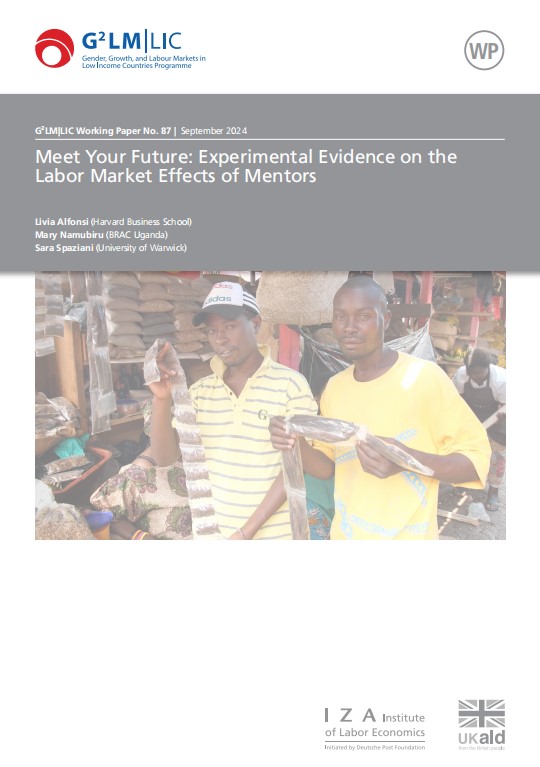We designed and randomized a mentorship program among students undergoing school-to-work transitions in Uganda. The program improved participants’ career trajectories up to a year after graduation. Using call transcripts and survey data, we find that the mentorship acted by providing information about entry-level jobs and encouragement, rather than job referrals or search capital. Consistent with this finding, mentored students lowered their reservation wages, raised their expected returns to experience, and turned down fewer job offers. These results highlight the role of distorted beliefs in prolonging youth unemployment and point to a cost-effective and scalable solution.

G²LM|LIC Working Paper No. 87